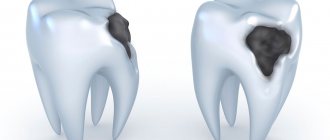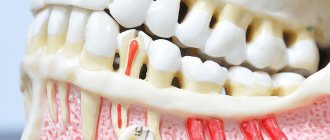Thrush is a disease of the vaginal and vulvar mucosa caused by yeast-like fungi of the genus Candida, which affects 35% of women during pregnancy1.
At risk for the occurrence of a recurrent form of thrush are those pregnant women who have already had a history of episodes of thrush
Pregnancy is a special period in a woman’s life, the body is rebuilt - hormonal levels change, the level of progesterone increases, which leads to a decrease in immunity, the level of estrogen increases, and therefore glycogen accumulates in the vaginal mucosa - a nutrient medium for yeast-like fungi of the genus Candida.
Lactobacilli are the predominant microorganisms in the vaginal microflora of a healthy woman. A normal concentration of lactobacilli provides the necessary acidity in the vagina, which suppresses the growth of fungi. Lactobacilli are also involved in the formation of local immunity
In addition, during thrush, the vaginal microflora is disrupted - the number of lactobacilli decreases sharply. These changes lead to the growth and reproduction of pathogenic fungi of the genus Candida, which leads to an increase in the number of manifestations of acute and recurrent forms of thrush.
Symptoms of thrush in a pregnant woman:
- itching and burning in the vulva and/or vagina, swelling and irritation in the external genitalia
- discharge of a “cheesy nature” from the vagina, sometimes the appearance of an unpleasant odor
- pain during and after sexual intercourse
- difficulty and pain in urination
The appearance of at least one of the symptoms is a reason for an unscheduled visit to the doctor.
Why does the disease occur in pregnant women?
Thrush or vulvovaginal candidiasis is an infectious disease caused by yeast-like fungi of the genus Candida. These microorganisms can be present in small quantities in the vagina and colon of an absolutely healthy woman. However, under certain conditions, an active increase in their numbers is observed, which is accompanied by inflammation.
Why are pregnant women at increased risk of developing thrush?
The thing is that during pregnancy the vaginal microflora changes: the number of lactobacilli in it decreases. Lactobacilli are necessary to maintain normal vaginal pH levels and suppress the growth of pathogenic microorganisms, including Candida fungi.
As long as a balance is maintained between the beneficial and pathogenic “inhabitants” of the vaginal microflora, the woman does not feel any discomfort. When the number of lactobacilli decreases, candida begins to multiply rapidly, causing unpleasant symptoms.
The second reason for the appearance of thrush in pregnant women is a decrease in immunity, which is a necessary condition for normal gestation. During gestation, special substances begin to be synthesized in the female body. Their primary task is to prevent the formation of antibodies that can cause the mother’s immune system to reject fetal cells.
Additional provocateurs for the development of thrush include:
- improper intimate hygiene. If, while taking a shower, a woman directs a stream of water from the anus to the pubis, this promotes the entry of intestinal microflora into the vagina. As a result, the physiological relationship between lactobacilli and pathogenic microbes is disrupted;
- chronic inflammatory processes, in which immunity is usually reduced;
- wearing synthetic underwear. Non-natural fabrics do not transmit oxygen well, which is necessary for lactobacilli to function normally;
- constant use of panty liners, which interfere with normal air circulation. When using pads in the vaginal area, the temperature rises and a moist environment is created. These are the most favorable conditions for candida reproduction;
- long-term use of antibacterial agents;
- hypothermia.
Why does thrush occur?
Thrush during pregnancy occurs due to a known pathogen called Candida fungus; this type of disease is also called “candidiasis.” If we talk about thrush as an infection in the later stages, we should not forget that an untimely visit to a gynecologist can play a “wicked joke” on its owner. Thrush can often be confused with any other disease that is characterized by the above-mentioned symptoms, for example: ureaplasma, genital herpes, chlamydia, etc. To accurately determine the cause of the ailment and discomfort, you must immediately consult a doctor.
Methods for diagnosing thrush
At the moment, in the modern world there are a large number of tools and methods that can almost reliably determine this or that type of disease. The first thing to do is to undergo a bacterioscopy if signs of thrush appear in a pregnant woman. The diagnosis of candidiasis will be obvious, because the smear contains about 20 leukocytes, which perform a protective function, and when they increase, we can talk about the disease.
How is the disease treated during pregnancy?
The difficulty of treating thrush during pregnancy is that it is important to maintain a balance between the therapeutic effect and the safety of the fetus. In the first trimester of gestation, the formation of the internal organs of the embryo occurs, and the unborn child is not yet protected by the placenta. In this regard, only topical drugs are used that do not penetrate the systemic circulation. For example, based on natamycin. In the second and third trimesters of gestation, when most of the organs and systems of the fetus are already formed, the doctor may advise the use of a wider range of drugs.
During treatment, it is recommended to refuse intimacy or use barrier contraception during sexual intercourse.
When treating a disease, it is important to strictly adhere to the regimen prescribed by a specialist. If you do not follow it, there will be no therapeutic effect, and the disease may become chronic. It is much more difficult to cure chronic vulvovaginal candidiasis.
Online consultation with a gynecologist
Online consultation
During the consultation, you will be able to voice your problem, the doctor will clarify the situation, interpret the tests, answer your questions and give the necessary recommendations.
Some pregnant women use folk remedies to treat thrush. However, “grandmother’s” methods are not only ineffective, but can also be harmful. For example, douching with a soda solution can lead to the washing out of beneficial vaginal microflora.
Treatment of thrush
Safety and effectiveness are the main criteria for choosing a drug in the treatment of thrush in pregnant women
The earlier a pregnant woman is diagnosed and treated for thrush, the lower the risk of negative consequences and complications on the course of pregnancy and for the health of the mother and her unborn child. When treating thrush, experts recommend an integrated approach to therapy.
It is important to follow the specialist’s recommendations, observing the prescribed dosages and application regimen.
Complex treatment should be aimed at solving two problems: eliminating the cause of thrush (fungi of the genus Candida) and restoring the vaginal microflora. It is important to know that not all drugs are approved for use during pregnancy. For example, most oral (systemic) medications and some topical medications for thrush are contraindicated during pregnancy.
Is the disease dangerous for the pregnant woman and the fetus?
Every expectant mother is concerned about the impact of thrush on her unborn child. And such worries are not in vain. Despite the fact that the disease in most cases does not harm the fetus, complications are still possible. In some situations, vulvovaginal candidiasis leads to the following consequences:
- fetal hypoxia;
- leakage of amniotic fluid;
- miscarriage, premature birth.
One of the most dangerous complications of thrush during pregnancy is infection of the fetus, which can occur both in the prenatal period and during delivery.
The likelihood of infection of the fetus increases before birth, when the protective cervical plug disappears. The entrance to the uterus opens, and infectious agents freely penetrate the organ, affecting the mucous membranes of the unborn baby.
The highest risk of infection occurs during the passage of the fetus through an infected birth canal. During delivery by cesarean section, infection of the child is also possible. Infection is especially dangerous for premature babies. These babies have a weakened immune system, and any infection is severe.
The disease can harm not only the unborn baby, but also the pregnant woman herself. In addition to unpleasant symptoms, candida can cause inflammatory processes in the pelvic organs. If the infection affects the urinary system, urethritis (inflammation of the urethra) and cystitis (inflammation of the bladder walls) may develop. After childbirth, many women experience candidal endometritis, in which inflammation of the inner mucous layer of the uterus occurs.
results
The cohort study included 441,949 pregnancies, of which 320,868 were included in the analysis of spontaneous abortion data, 226,599 in the analysis of major malformations, and 7832 in the analysis of stillbirths.
Most women (69.5%) received a single low dose (150 mg) of the drug.
- The use of oral fluconazole in early pregnancy is associated with an increased risk of spontaneous abortion compared with no treatment (odds ratio for 345 cases of low dose use, 2.23, 95% CI 1.96–2.54; odds ratio for 249 cases of high dose use drug, 3.20, 95% CI 2.73–3.75).
- Fluconazole use during the first trimester of pregnancy did not increase the overall risk of congenital malformations, but high-dose antifungal use increased the risk of cardiac disease (septal closure), odds ratio, 1.81, 95% CI 1.04–3.14 , compared to not taking the drug.
- There is no evidence that the use of fluconazole is associated with an increased risk of stillbirth.
What is the prevention of thrush?
It is impossible to completely protect yourself from thrush during pregnancy, but every woman can reduce the risk of the disease. To do this you need:
- observe the rules of intimate hygiene: take a shower regularly, wash in the right direction (from the pubis to the anus);
- wear loose underwear made from natural fabrics;
- Do not use panty liners 24 hours a day. It is also worth paying attention to their timely replacement;
- do not overcool;
- eat rationally, include foods enriched with vitamins and microelements in the menu.
Contraindications and adverse reactions
Candide is not prescribed to cure thrush in patients with hypersensitivity to the components. The medicine is not suitable for women during menstruation and the first trimester of pregnancy. Nursing mothers can use Candide to combat thrush only with extreme caution, starting with small doses and observing the child’s reaction. Negative effects when using Candida occur extremely rarely, but patients may still experience local irritation, burning, itching or swelling of the mucous membrane. Patients reported headaches, increased vaginal discharge, and increased urination.
Read more about thrush on the website: etogribok.ru/
Causes of gum disease during pregnancy
In the development of symptoms of gingivitis in pregnant women, an important role is played by:
- hormonal changes,
- increased production of certain hormones,
- as well as poor oral hygiene.
Besides:
- The ability of gum tissue to resist infection decreases;
- Hormonal changes increase blood flow to tissues by 30-50%;
- Cellular structures hold much more fluid during pregnancy;
- As a result of fluid retention and increased blood flow, the gums become swollen and very tender. Brushing your teeth becomes painful;
- If a woman neglects daily hygiene, trying to avoid unpleasant sensations, this leads to the accumulation of plaque, consisting of bacteria and food debris;
- Toxins produced by microbes further irritate the gums, leading to inflammation and bleeding gums. Gingivitis is not an independent disease, but an early stage of severe gum disease called periodontitis. Left untreated, it can lead to permanent damage to the gum tissue and the loss of several teeth.
- Morning sickness with vomiting can contribute to the development of gingivitis in pregnant women. Stomach acid contained in vomit has a negative effect on long-term gum irritation;
- Pregnant women may become sensitive to the smell or taste of toothpaste and avoid brushing their teeth for this reason. In this case, you need to brush your teeth simply with a dampened toothbrush, but several times a day every day.








